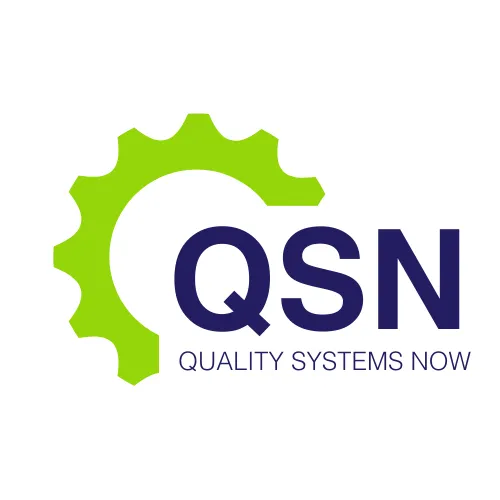NEWS

Training Courses Designed for Companies Wanting to Upskill Their Teams
Companies are expected to maintain rigorous quality standards, adhere to Good Manufacturing Practice (GMP) requirements, and ensure their personnel are fully competent in regulatory expectations. To meet these challenges, Quality Systems Now (QSN) has developed QSN Academy, a suite of training courses specifically designed for companies seeking to upskill their teams. These courses provide structured, science-based education that enhances regulatory compliance knowledge, strengthens operational capabilities, and cultivates a culture of quality across all levels of the organisation.
Upskilling employees is a strategic imperative. With rapidly evolving regulations, emerging technologies, and increasing scrutiny from authorities such as the Therapeutic Goods Administration (TGA), the U.S. Food and Drug Administration (FDA), and the European Medicines Agency (EMA), companies must ensure that staff remain current with industry expectations. QSN Academy’s corporate training programs address this need by offering targeted learning pathways that integrate scientific rigor with practical applicability.
The Need for Team-Focused Training
Many organisations in the life sciences sector face challenges related to regulatory compliance, inspection readiness, and quality management. While individuals may possess technical expertise, gaps often exist in their understanding of regulatory frameworks, risk management, and operational best practices.
Corporate training programs allow organisations to systematically address these gaps across teams. Upskilling teams ensures consistent implementation of quality processes, enhances collaboration, and reduces the likelihood of compliance breaches. It also prepares staff for regulatory inspections, audits, and internal assessments, promoting organisational resilience and sustainable growth.
QSN Academy’s courses are specifically designed to meet these objectives. They provide a combination of theoretical knowledge and practical application, ensuring participants can translate learning directly into workplace improvements.
Core Areas of QSN Academy Training
QSN Academy offers training modules that cover the full spectrum of regulatory and compliance requirements relevant to therapeutic goods manufacturers, testing laboratories, and biotechnology companies. Key focus areas include:
Good Manufacturing Practice (GMP) and Quality Systems Fundamentals: Introducing the principles of production, quality control, documentation, and validation that form the basis of regulatory compliance.
Inspection Readiness and Regulatory Awareness: Preparing teams for TGA, FDA, and EMA inspections, including identification of common non-compliance areas and strategies to prevent observations.
Data Integrity and Documentation Management: Ensuring accuracy, traceability, and completeness of records in alignment with regulatory expectations.
Risk Assessment and Corrective Action/Preventive Action (CAPA): Developing frameworks for proactively identifying, mitigating, and resolving compliance risks.
Process Validation and Equipment Qualification: Training teams in methodologies for validating manufacturing processes, analytical methods, and equipment performance.
Continuous Improvement and Quality Culture: Encouraging practices that embed compliance into daily operations, fostering accountability, and reinforcing organisational excellence.
Each module is tailored to team learning, with interactive workshops, case studies, and scenario-based exercises that promote engagement, problem-solving, and collaboration.
Advantages of Corporate Team Training
Corporate-focused training provides several benefits over individual or ad hoc learning approaches:
Consistency Across Teams
When entire teams undergo the same training, there is a unified understanding of regulatory requirements and quality standards. This consistency reduces errors, ensures adherence to procedures, and strengthens the organisation’s overall compliance posture.
Improved Operational Performance
Upskilled teams can implement GMP principles more effectively, execute standard operating procedures accurately, and maintain comprehensive documentation. Training enhances efficiency while minimizing risk, ensuring that operational practices consistently meet regulatory expectations.
Enhanced Inspection Preparedness
Regulatory inspections often assess the competency of teams as well as processes. A workforce trained through structured programs demonstrates organisational readiness, accountability, and the ability to respond to queries or deviations confidently.
Facilitated Knowledge Transfer
Corporate training promotes internal knowledge sharing, allowing experienced staff to mentor newer team members. This accelerates learning curves, embeds best practices, and supports succession planning within critical operational roles.
Cost-Effective Compliance Strategy
Investing in team training reduces the risk of regulatory penalties, recalls, or non-compliance. Proactive upskilling mitigates the cost of remediation actions and protects the company’s reputation in competitive markets.
Implementation Strategies for Companies
Companies seeking to upskill their teams through QSN Academy should consider the following strategies:
Assessment of Training Needs: Evaluate team competencies, identify regulatory knowledge gaps, and prioritise modules that align with operational priorities.
Structured Learning Pathways: Develop a training roadmap with progressive modules that build from foundational concepts to advanced regulatory applications.
Integration with Quality Systems: Link training outcomes to existing quality management processes, ensuring practical application in daily operations.
Regular Evaluation and Feedback: Assess training effectiveness through quizzes, practical exercises, and performance metrics to ensure learning objectives are met.
Ongoing Professional Development: Schedule refresher courses and updates to address evolving regulations, technological advancements, and industry best practices.
Case Application: Practical Benefits for Teams
Consider a biotechnology company preparing for a TGA inspection. A team trained through QSN Academy would be able to:
Demonstrate accurate documentation and traceability of manufacturing processes.
Identify and address potential deviations proactively, preventing observations.
Apply risk assessment methodologies to operational and analytical processes.
Communicate regulatory requirements clearly across departments, supporting cohesive compliance practices.
Maintain readiness for follow-up actions and corrective implementations in real time.
These capabilities enhance the company’s compliance confidence, reduce inspection risk, and strengthen internal quality culture.
Scientific Rigor and Evidence-Based Learning
QSN Academy’s training programs are grounded in scientific and regulatory rigor. All courses reflect the latest GMP principles, international standards, and industry guidance. Training content draws upon real-world regulatory expectations, including inspection trends, common observations, and emerging compliance risks.
By combining theoretical foundations with practical exercises, participants develop not only knowledge but also the analytical and problem-solving skills required to implement compliant solutions in operational contexts. This evidence-based approach ensures that learning is relevant, measurable, and directly applicable to team workflows.
Conclusion
In an era of increasing regulatory complexity, the ability to upskill teams is critical to organisational success. QSN Academy provides public and corporate training courses designed to enhance regulatory compliance knowledge, operational competency, and inspection readiness. By investing in team development, companies in the therapeutic goods, pharmaceutical, and biotechnology sectors can maintain robust quality systems, strengthen compliance culture, and reduce the risk of non-conformance.
Upskilled teams are not only better prepared to meet regulatory requirements but also contribute to operational excellence, improved efficiency, and sustainable growth. Through QSN Academy, organisations can ensure that their workforce possesses the knowledge, skills, and confidence required to navigate the evolving regulatory landscape effectively.
